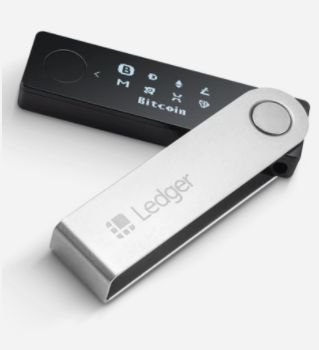Explainer: So you just bought cryptocurrency; how do you store your holdings safely?

Swyftx co-founder Alex Harper explains your options for storing cryptocurrency holdings
- How to store crypto becoming an increasing concern in conjunction with the rise in crypto investment
- Alex Harper, co-founder of Australian crypto exchange Swyftx, outlines various options investors have
- Says cryptocurrency exchanges should be doing more to help investors
Crypto investment is on the rise in Australia – but how do new investors store their cryptocurrency holdings?
The lack of third party involvement, neither governments or banks, is one of crypto’s selling points.
But it does mean investors need to take more responsibility than they would if investing in shares.
Crypto wallets
But what options do investors have and how do they work?
Stockhead spoke with Alex Harper, the co-founder of Australian crypto exchange Swyftx, to get an idea of how investors can store cryptocurrencies.
He says one of the safer options is using a crypto wallet.
“With crypto anyone can create a wallet and it can be on your computer or set it up on your phone or purchase dedicated hardware which can essentially help increase security of storage of that crypto,” Harper explained.
“When you buy cryptocurrency from Swyftx you can keep it on the exchange where we provided hosted wallets – we manage that all behind the scenes for you.”
Storing off exchanges
Alternatively you can store your crypto off the internet entirely and have it in a hardware wallet.
Harper says this option (sometimes called “cold storage”) is better for long term investing and gives investors full control.
One example is the Ledger Nano S which supports 24 cryptocurrencies, can connect to any computer through a USB cable. It also can instantly verify and confirm crypto transactions.

Nevertheless, your assets aren’t physically in the “wallet” just like cash or cards.
“It isn’t, because it’s in a blockchain – which means its essentially in a cloud and distributed between everyone,” Harper explained.
“When people talk about hardware wallets, it stores your private keys – which is kind of like your password to access your coins on the blockchain. They’re not sitting on there but the access and ability to unlock them is encrypted in the device.”
But it does have a major drawback.
“When you do store it on your wallet, it’s not easy to trade it with someone else, you have to move it to an exchange to trade it and that can be clunky especially with the security around it,” Harper said.
Crypto storage growing in conjunction with the market
Harper reports his firm has seen rapid growth in 2020 in conjunction with the broader crypto sector.
“I think a lot of customers expressed that they’re interested in the deflationary fundamentals of bitcoin. Governments are printing money and deflating currencies to keep economies running, so people turning to bitcoin see it’s got limited supply, free from government,” he said.
And as crypto investing has grown, so has cryptocurrency storage.
“I believe the amount of cryptocurrencies flowing out of exchanges and going into personal storage wallets is at an all-time high,” he said.
“Which indicates a lot of people want to take ownership of our cryptocurrency and typically that would indicate longer term investors.”
Calls for other exchanges to help crypto investors
Harper has previously noted rival exchanges should do more to help investors store cryptocurrency assets.
He admitted online options were financially sound for them, but promoting crypto security would help exchanges stand out from their peers.
“Other exchanges have been silent on cold storage. They want all of the funds to stay deposited on the exchange,” Harper said.
“However, we know that by doing the right thing and making our users more aware of Ledger, we will be building loyalty instead of orchestrating a quick cash grab.
“This will be apparent to our users because they know we have their best interest in mind. This is a long-term strategy to build trust with our users.”
Related Topics
UNLOCK INSIGHTS
Discover the untold stories of emerging ASX stocks.
Daily news and expert analysis, it's free to subscribe.
By proceeding, you confirm you understand that we handle personal information in accordance with our Privacy Policy.








